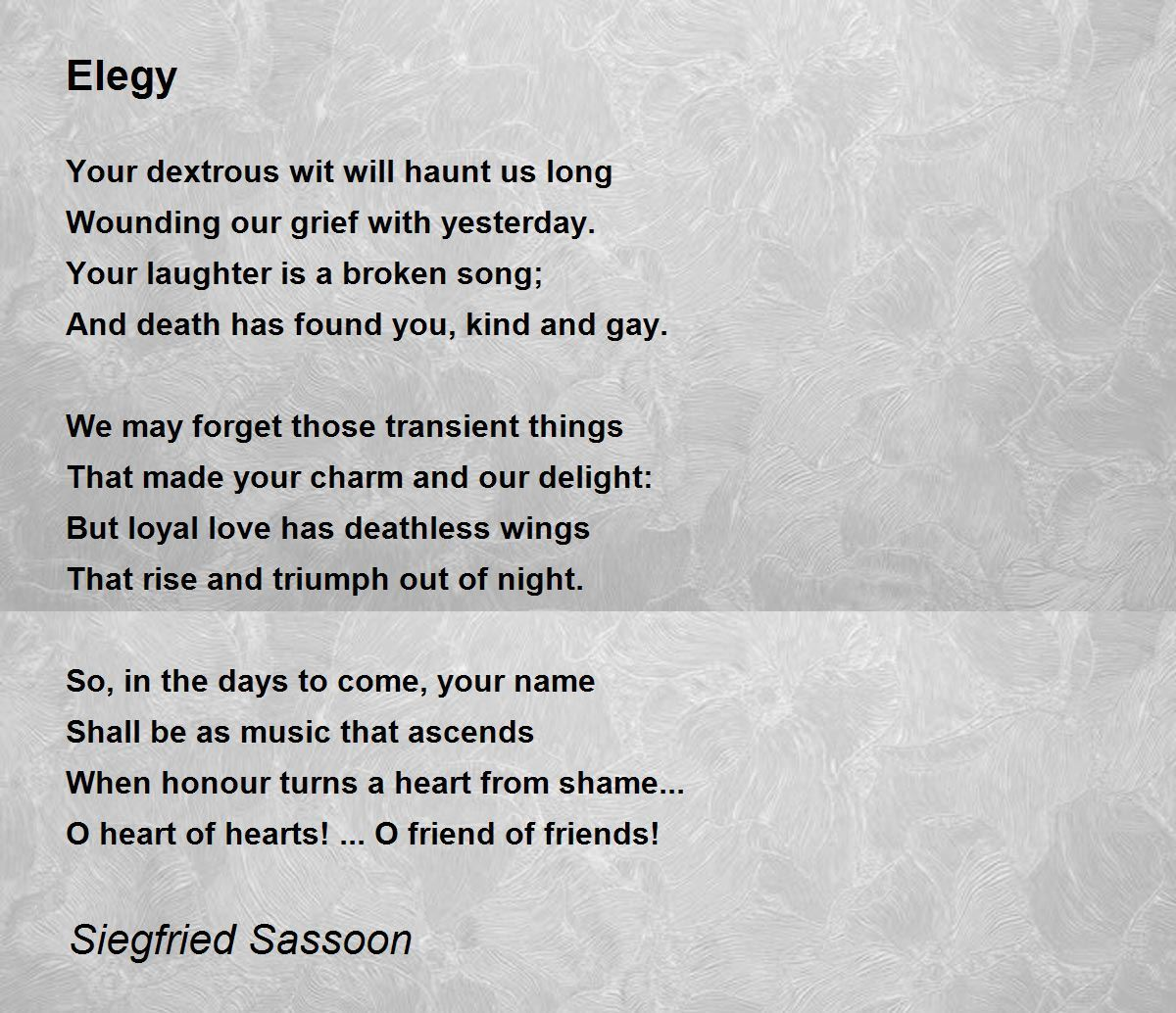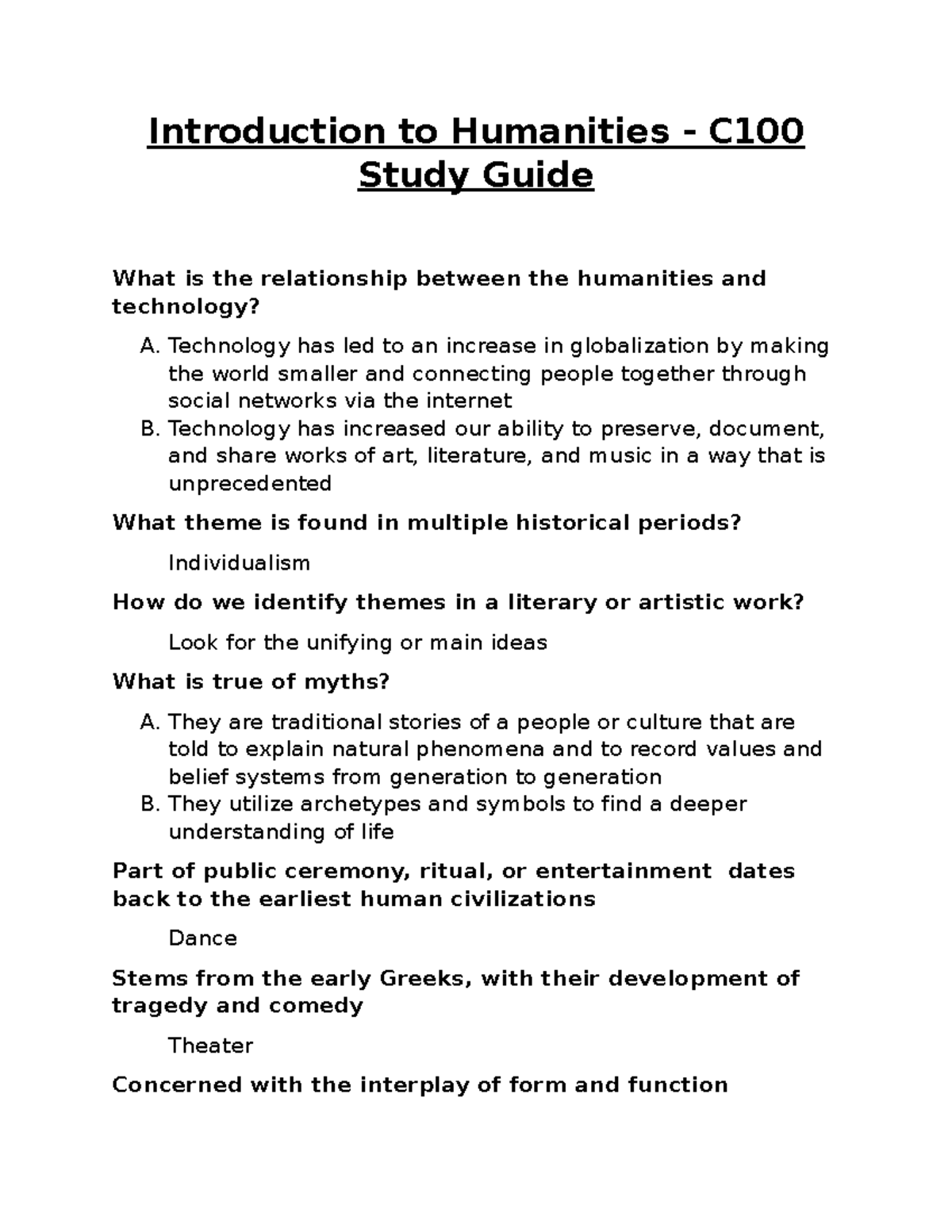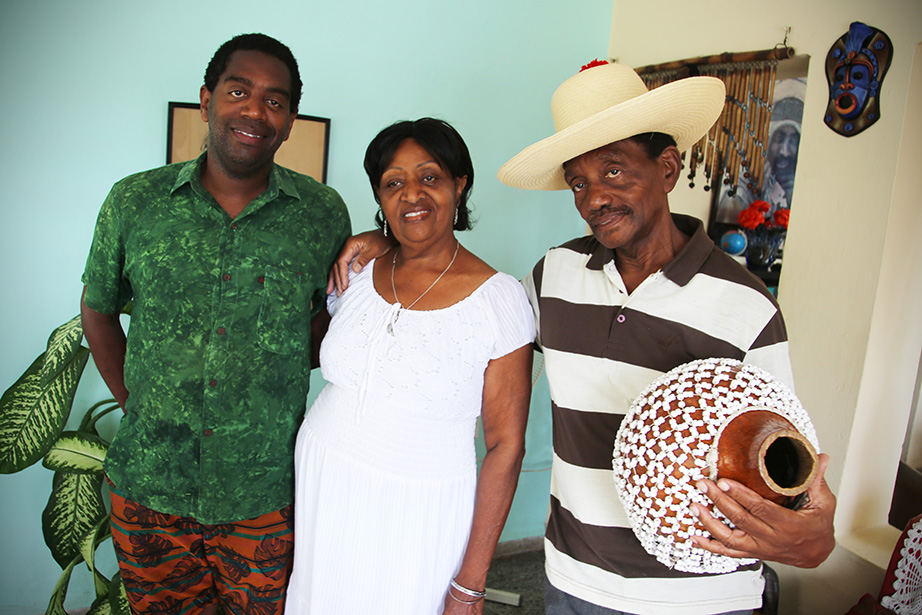Elegy poetry serves as a poignant expression of sorrow and loss, capturing the essence of grief through artful verses. In the hushed corners of workshops for poets, such as those held in the enchanting Harvard Poetry Room, individuals converge to explore the profound depths of writing elegies. These gatherings focus not only on the craft of elegiac verse but also on the collective experience of mourning that unites us amid life’s inevitable farewells. Hosted as part of community poetry initiatives, these sessions encourage participants to articulate their emotional landscapes, fostering connections through poetry and grief. As poetry continues to be a vital outlet for such heavy themes, the Elegy Project exemplifies how this form can bridge isolation and provide solace in shared human experiences.
Elegiac poetry, often seen as a tribute to the departed and a canvas for mourning, finds its voice in intimate settings where creators come together. This form of poetic expression, rich with emotion, allows individuals to grapple with their feelings of loss and remembrance. In contexts such as the Woodberry Poetry Room, poets and writers alike join forces in workshops designed to delve into themes of bereavement and commemoration. Through collaborative efforts, these community initiatives provide a space for exploring the nuances of poetry amid personal experiences of grief. Engaging in writing elegies becomes not only a creative endeavor but also a transformative journey that cultivates a deeper understanding of shared human struggles.
The Importance of Elegy Poetry in Processing Grief
Elegy poetry serves an essential function in processing grief, articulating emotions that are often too complex to express in everyday language. Through the structured form of elegy, poets can navigate the intricacies of mourning, making sense of their loss while honoring those who have passed. In a world increasingly affected by disruptions such as pandemics, elegies allow individuals to connect with their feelings of loneliness and bereavement, and foster communal understanding. The workshops at the Woodberry Poetry Room exemplify how shared experiences of loss can bridge the gap between poets and non-poets alike, cultivating an environment where everyone can explore their emotions through the powerful lens of poetry.
The Elegy Project, spearheaded by Karen Elizabeth Bishop and David Sherman, emphasizes the deeply personal yet universally relatable nature of elegies. By encouraging participants in their workshops to engage with their emotions and articulate grief, they cultivate a sense of solidarity among attendees. In this way, elegy poetry not only aids the writer but also resonates with readers who may share similar sentiments. As Mary Walker Graham notes, “to be alive is to experience loss,” underscoring that the elegy transcends mere artistic expression, becoming a necessary tool for collective healing during challenging times.
Community Poetry Initiatives: Bringing People Together
Community poetry initiatives play a pivotal role in breaking down barriers and fostering connections among individuals from all walks of life. The Elegy Project exemplifies this aspect, as it invites participants into a space of shared vulnerability and creativity. By providing workshops in accessible venues like Harvard’s Woodberry Poetry Room, organizers draw in diverse groups of people, from students to retirees, all united by their desire to express emotions through poetry. These gatherings not only enhance individual creativity but also cultivate a sense of togetherness, illustrating that poetry is indeed for everyone, not just the seasoned poet.
The act of writing together in a communal setting can ease feelings of isolation and encourage exploration of personal narratives. In the Elegy Project workshops, participants learn that poetry can be a communal resource for processing grief and making meaning out of loss. As participants engage with prompts and the established poetry collection, they foster relationships that blossom through shared experiences of writing. The need for human connection becomes evident, as poetry workshops transform into a safe harbor for creative expression, allowing individuals to support one another while navigating their journeys of grief.
Workshops for Poets: A Collaborative Experience
Participating in workshops for poets provides an invaluable opportunity for writers of all skill levels to enhance their craft in a collaborative environment. The Elegy Project’s workshops, which merge professional guidance with the input of community members, effectively showcase how poets can learn from one another’s experiences. With facilitators like Karen Elizabeth Bishop and David Sherman at the helm, the workshops become an incubator for new ideas, fostering experimentation with form, style, and thematic exploration—particularly in the realm of elegy poetry.
These workshops also serve to demystify the poetic process, helping attendees discover that poetry does not require a rigid structure or specialized background. By actively participating in the writing process and hearing feedback from fellow poets, participants grow more confident in their abilities, inspiring them to embrace poetry as a vital part of their lives. This communal atmosphere not only nurtures creative talents but also empowers individuals to share their unique voices, thus enriching the broader landscape of community poetry.
Exploring the Writing Process in Poetry
The writing process in poetry is often a deeply personal and transformative journey that can be enhanced through structured exploration. Workshops like the ones organized by the Elegy Project provide participants with prompts and inspiration from established texts, allowing them to channel their feelings into cohesive works of poetry. By examining the relationship between emotion and expression, poets can navigate their experiences more deeply, leading to a richer body of work. The collaborative nature of these workshops encourages dialogue about the writing process, enabling participants to reflect on their approaches and glean insights from their peers.
Moreover, focusing on elegy poetry allows poets to confront themes of loss and memory directly, engaging with their emotions in a structured way. By utilizing prompts related to grief, participants can access their creative voices more readily, thereby refining their skills while working through profound emotions. This process of exploration in the writing workshops not only enhances individual growth but also builds a foundation of support within the community, reinforcing the idea that poetry is a means of both personal expression and collective healing.
The Role of Harvard Poetry Room in Community Engagement
The Harvard Poetry Room plays a significant role as a hub for community engagement through poetry, offering resources and venues that bring people together for collaborative writing experiences. By hosting events like the Elegy Project, the Poetry Room actively contributes to breaking down walls that often separate poets from their potential audiences. Access to the Poetry Room’s collection and inspiring environment fosters creativity while encouraging individuals to explore their poetic voices. This melding of community engagement and artistic expression revitalizes the local poetic landscape, making it more inclusive.
As highlighted by event organizers, workshops at the Poetry Room nurture accessibility to poetry for everyone. By emphasizing that poetry is not confined to published authors alone, the Poetry Room encourages participants to view themselves as potential contributors to the body of poetry. This approach emphasizes the communal aspect of art, turning the Poetry Room into a vital space for dialogue and connection among individuals from diverse backgrounds and experiences. Such initiatives remind us that poetry can flourish in community settings, enriching our collective understanding of grief, memory, and shared humanity.
Navigating Grief Through Poetry
Navigating grief through poetry can be a powerful and cathartic experience for many. The act of writing elegies allows individuals to confront their pain, express their emotions, and ultimately make sense of what they have lost. Workshops like the Elegy Project provide participants with thoughtful prompts that inspire deeper reflection, enabling each individual to delve into their unique grief narratives. By acknowledging feelings of loss within a supportive community, writers can explore their journeys with a sense of camaraderie, breaking down the isolating nature of grief.
Moreover, incorporating elements of reflection and discussion in these workshops allows participants to learn from one another’s experiences, fostering a shared understanding of the complexities surrounding grief. As they write and share their elegies, participants build connections that can lead to healing and growth. The exercises and collaborative feedback not only lend weight to their poems but also enhance the emotional depth of their writing. In this way, poetry transforms from a solitary endeavor into a communal journey, illustrating its role as a vital tool in navigating the complexities of grief.
Elevating Voices Through Poetry Workshops
Elevating voices through poetry workshops is an essential aspect of nurturing creativity within communities. The Elegy Project emphasizes inclusivity, inviting participants from all backgrounds to share and articulate their unique stories and perspectives through poetry. By fostering an environment where every voice is valued, these workshops empower individuals to break free from the constraints that may have previously inhibited their self-expression. They encourage participants to draw on their life experiences, making poetry a democratic means of artistic expression.
In workshops like these, individuals are often provided with tools to enhance their writing capabilities, whether through guided prompts or collaborative sharing. This elevation of personal narratives not only enriches the participants’ understanding of poetry but also broadens the collective tapestry of experiences within the community. Poetry becomes a mirror reflecting diverse stories, reminding all participants that their voices and experiences matter. By utilizing the workshops as a platform for sharing and growth, the Elegy Project illustrates the profound impact community dynamics can have on poetry as a form of art.
The Healing Aspects of Poetry and Grief
The healing aspects of poetry in the context of grief cannot be overstated. Elegy poetry provides a unique framework for individuals to confront and articulate their losses, allowing them to express feelings that might otherwise remain unspoken. Through the writing process, participants in workshops like the Elegy Project learn to channel their emotions creatively, transforming pain into poignant pieces of art. This act of creation can be remarkably cathartic, offering solace and allowing writers to connect with others who share similar experiences of loss.
In these workshops, the emphasis on communal writing not only fosters a sense of belonging but also reinforces the idea that grief is a shared human experience. As participants read their elegies aloud, they not only honor their own losses but also create a space where collective mourning can take place. This shared vulnerability can lead to deep connections among attendees, facilitating healing within the group. Ultimately, poetry becomes not only a personal refuge but also a communal balm for grief, highlighting the profound ways in which art can facilitate understanding, connection, and healing.
The Intersection of Poetry and Community Initiatives
The intersection of poetry and community initiatives fosters a vibrant cultural landscape where creative expression flourishes. Efforts such as the Elegy Project leverage the power of poetry to engage individuals, encourage emotional discourse, and strengthen community ties. By integrating elements of writing workshops with outreach programs, poetry becomes a living, breathing part of community identity. When diverse voices of the community unite to engage with poetic expression, it transforms both individuals and the collective environment.
Through community poetry initiatives like those at the Woodberry Poetry Room, the accessibility of poetry comes to the forefront. Individuals who may have previously felt disconnected from the art form are invited to participate, share, and grow through collaborative writing experiences. This democratization of poetry not only enriches lives but also instills a sense of pride and ownership within the community. The resulting energies invigorate local culture, showcasing how poetry can act as both an individual quest for expression and a cultural unifier, seamlessly intertwining personal stories with collective narratives.
Frequently Asked Questions
What is elegy poetry and how can it be used in workshops for poets?
Elegy poetry is a poetic form that expresses sorrow, mourning, or lamentation for someone who has died, often reflecting on loss and memory. Workshops for poets focusing on elegy poetry can provide participants with a structured environment to explore their emotions and experiences related to grief, and learn techniques to craft their own elegies. These workshops often include reading and discussion of exemplary elegies, prompts to inspire writing, and opportunities for sharing and feedback within a supportive community.
How does the Elegy Project in Harvard’s Woodberry Poetry Room facilitate community poetry initiatives?
The Elegy Project at Harvard’s Woodberry Poetry Room is designed to foster community engagement with poetry by addressing themes of grief and loss through shared experiences. By offering workshops and distributing poem cards in public spaces, the project encourages participants to interact with poetry in a communal setting, thus making the often solitary act of writing elegies a shared journey. This initiative seeks to bring poetry into public discourse and help individuals process their grief collectively.
What is the significance of writing elegies during periods of grief, such as the pandemic?
Writing elegies during periods of grief, such as the one experienced during the pandemic, serves as a therapeutic outlet for individuals coping with loss. The act of articulating sorrow through elegy poetry allows writers to confront their feelings, memorialize loved ones, and connect with others who share similar experiences. Such creative expression can help mitigate feelings of loneliness and foster community understanding, making grief feel less isolating.
How do poetry and grief intersect in the context of the Elegy Project’s workshops?
In the context of the Elegy Project’s workshops, poetry and grief intersect as participants are guided to articulate their personal experiences of loss through elegy poetry. These workshops provide a safe space for individuals to explore complex emotions surrounding grief, using poetry as a medium for expressing sorrow, celebrating memories, and finding solace. This creative process aids in processing grief and promotes healing through shared expression.
What resources are available for learning how to write elegies, especially in community settings?
Resources for learning to write elegies in community settings include workshops like those offered by the Elegy Project at Harvard’s Woodberry Poetry Room, where participants can receive guidance and prompts. Additionally, community poetry initiatives may provide access to poetry collections, expert-led discussions, and written materials focused on elegy writing techniques. Engaging with these resources allows aspiring poets to develop their voices and craft meaningful elegies.
What role does the Woodberry Poetry Room play in supporting elegy writing?
The Woodberry Poetry Room at Harvard plays a vital role in supporting elegy writing by hosting workshops and events like the Elegy Project, which connect poets and the community. By providing access to a rich collection of poetry and facilitating interactions between poets and participants, the room nurtures creativity and engagement with elegy poetry. It serves as a collaborative space where individuals can explore their emotions and deepen their understanding of this poignant poetic form.
| Key Point | Details |
|---|---|
| Elegy Definition | Elegy is poetry that honors the dead and laments loss, often written in solitude. |
| The Elegy Project | An initiative to address loneliness and grief during the pandemic through poetry workshops and public poetry cards placed in random locations. |
| Workshop Leaders | Karen Elizabeth Bishop and David Sherman are leading the workshops, encouraging creative expression through elegy. |
| Community Engagement | Workshops invite diverse groups, making poetry accessible to everyone and nurturing personal expression. |
| Quotes | Mary Walker Graham emphasizes elegy’s primal role in processing loss and encouraging reflection. |
Summary
Elegy poetry serves as a profound expression of grief and loss, allowing individuals to confront their emotions in a personal yet universal way. Through community workshops like the Elegy Project, participants explore their own experiences of mourning while connecting with others. These initiatives not only foster a creative dialogue but also encourage healing through shared artistic expression.



